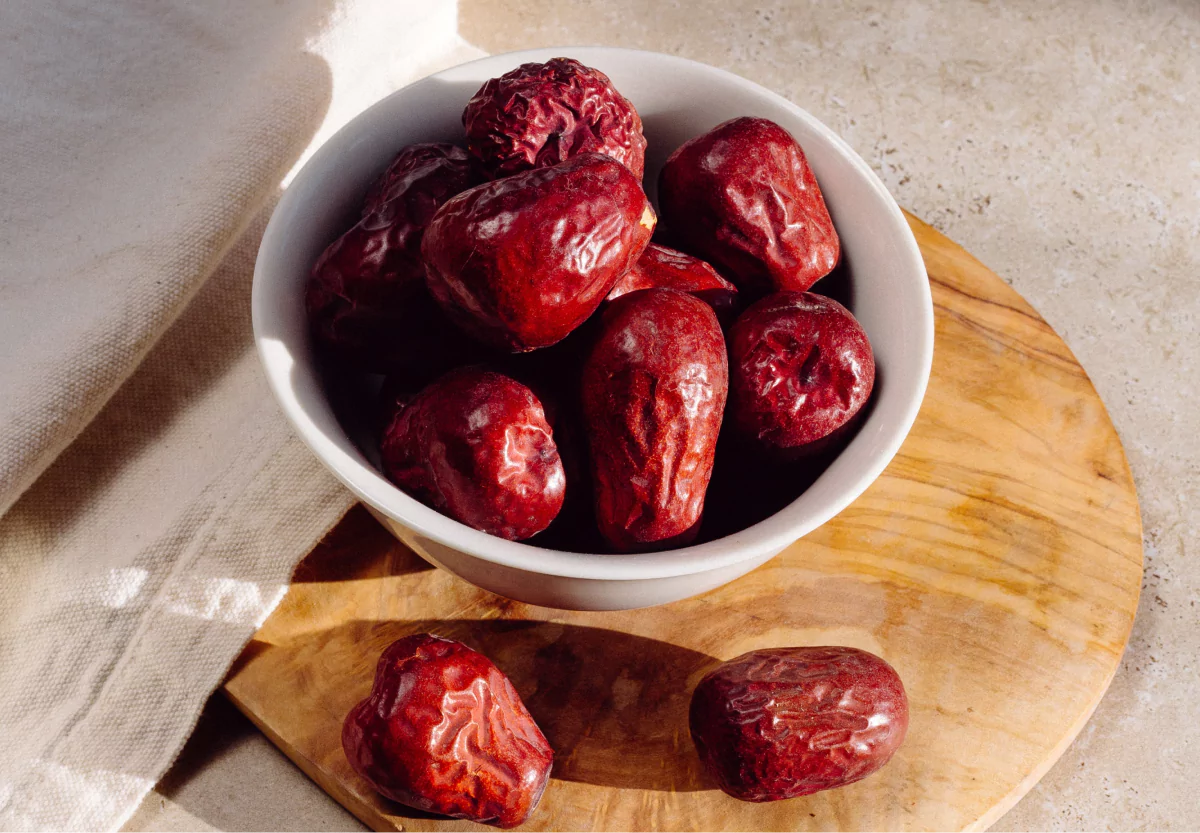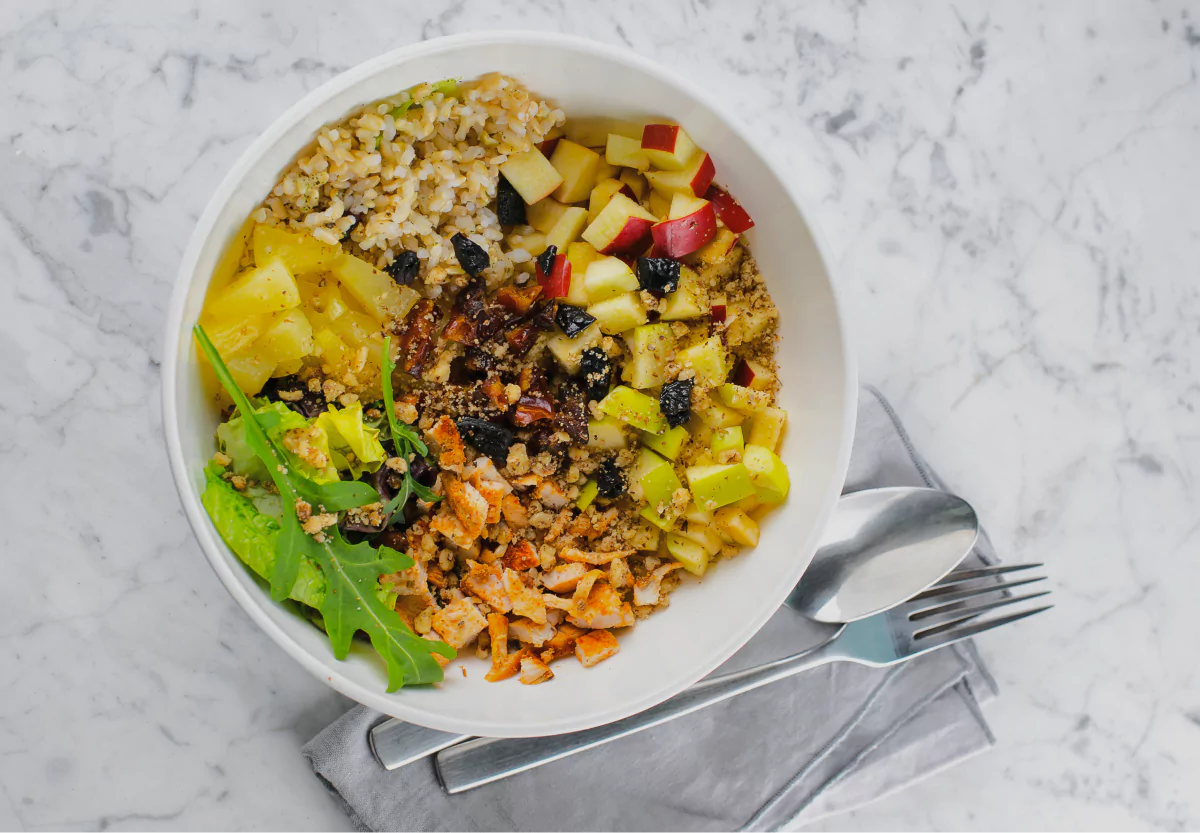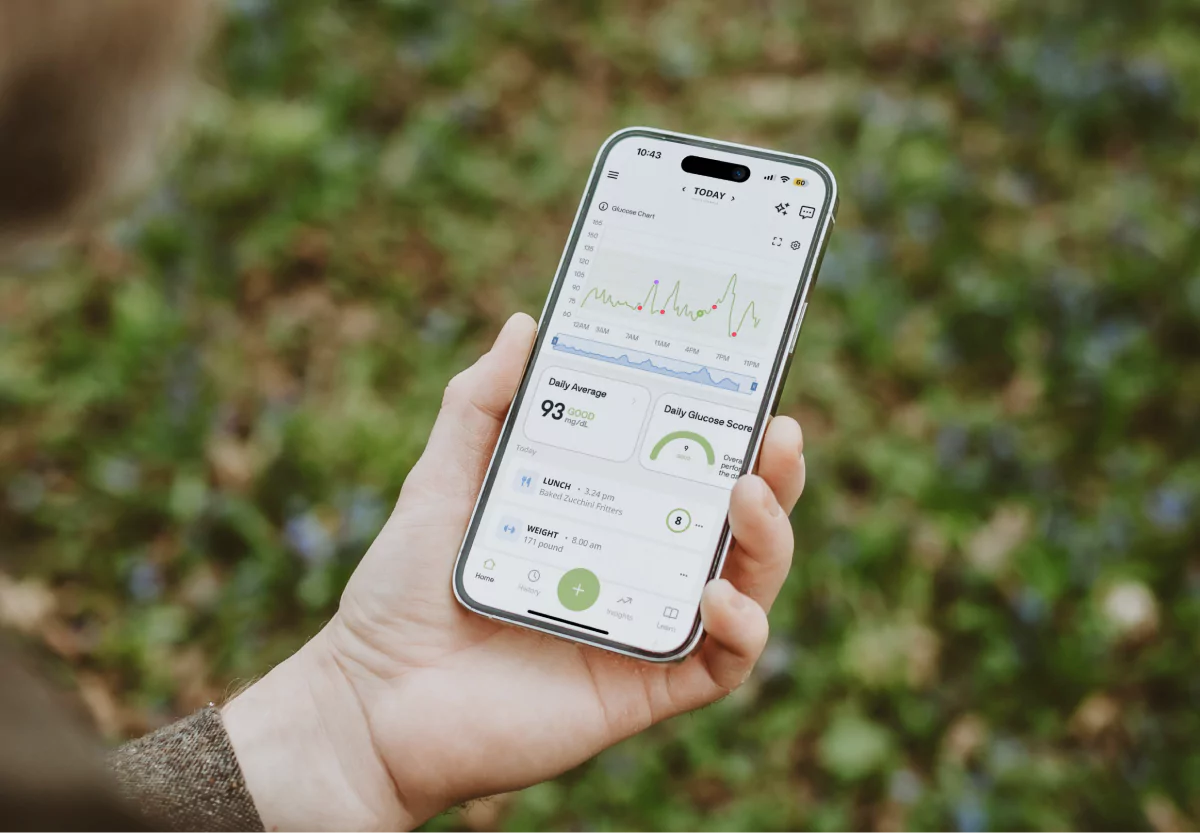Why Dates Deserve a Spot in Your Healthy Diet: A Comprehensive Look

Key Takeaways
Dates are sweet, nutrient-packed fruits that offer an abundance of health benefits. Due to their natural sweetness and unmistakably rich flavor, it's no secret why so many people view dates as a staple in their diet.
Beyond their delectable taste, dates can be eaten as both a fresh or dried fruit, and possess many vitamins, minerals, and fiber. They also contain antioxidants in a variety of forms.
You may have seen this fruit rising in popularity recently, and that’s in part due to the many health benefits they have to offer. Wondering whether you should be including more dates in your diet?
Let's get into the health benefits of dates, how they may influence blood sugar, and a few different ways you can start incorporating dates into your meals today!
Nutrition Content of Dates: Macronutrients and Micronutrients
There are a few different varieties of dates you may see while browsing your local supermarket. Before jumping right into what health benefits dates have to offer, let’s take a look at the nutritional content of dates.
Here’s a breakdown of the nutritional value of a serving of four dates, including the macronutrients and micronutrients they contain.
Macronutrient Content of Dates

As a fruit, dried dates are mainly a source of carbohydrates, and contain fructose. A serving of four dates has about 80 calories and can also be a good source of dietary fiber, at about 2.3 grams of fiber.
Here’s a look at the macronutrient content of four dried and pitted Medjool dates (about 28 grams):
- Carbs: 21.2 grams (18 grams sugar)
- Protein: 0.7 grams
- Fat: 0.1 grams
5 Potential Health Benefits Of Dates

Since dates are dried, their nutritional profile is more concentrated than fresh fruits. This also means their caloric content and sugar content is higher. But despite their higher caloric value, dates are packed with essential vitamins and minerals that are definitely worth the hype.
Let’s dive into five of the key health benefits of including more dates in your diet.
1) May Support Digestive Health
Dates are high in fiber making them a great addition for supporting digestive health in those who may need a fiber boost. Fiber can aid in your digestive health by making your stool easier to pass and decreasing the chances of constipation.
One study took individuals who did not regularly consume dates and had them eat seven dates per day for 21 days. This resulted in a significant improvement in the frequency and presence of bowel movements.
Eating more dates may be helpful for those experiencing difficulty with digestion or irregular bowel movements. It is important to note, however, that dates are considered high FODMAP foods. For those with FODMAP sensitivities, the body may not tolerate dates as well.
2) May Support Heart Health

Another beneficial aspect of dates is that they’re rich in potassium. Potassium plays a key role in many bodily functions including kidney function, heart function, and muscle contractions.
The fiber content of dates may also benefit heart health by helping to decrease LDL cholesterol levels and promoting healthy blood sugar levels. In fact, one study conducted by the International Journal of Molecular Sciences looked at the cardiovascular health of a group of patients consuming dates.
Researchers measured plasma lipid levels, inflammation levels, and oxidative damage of the patients. Notably, this study found that eating dates may have a positive impact on cardiovascular health.
3) Contain Antioxidants

Dates contain a few different types of antioxidants that may positively impact your health. These antioxidants help to fight free radicals in the body which, in higher amounts, may cause damage to your cells.
The main antioxidants from bioactive compounds in dates include:
- Flavonoids. Flavonoids are a type of polyphenol. This compound may help modulate inflammation and contribute to lowering risk for certain health conditions like diabetes. Phenolic acids in general are known for their anti-inflammatory properties. These antioxidants have been shown to aid in certain cardiac conditions, as well.
- Carotenoids. Carotenoids are antioxidants that are beneficial in maintaining heart health. Studies have also found them to be beneficial in preventing certain retinal diseases.
Dates also contain trace amounts of antioxidant micronutrients such as vitamin C, selenium, and vitamin E.
4) May Help Prevent Certain Diseases
Dates on their own won’t prevent disease. This is because no single food is powerful enough to offset the detrimental effects of a poor overall diet. However, including dates as part of an overall balanced, nutrient-dense diet may contribute to decreased disease risk for some people.
As we mentioned before, dates are packed with phenolic acids – a type of antioxidant known for its anti-inflammatory properties. Dates have a potent total phenolic content, which may be associated with disease prevention and improved overall well-being.
The phenols in dates have been shown to lower the risk of certain chronic diseases like heart disease and some cancers. Since phenolic acids are anti-inflammatory, they can help to reduce free radicals and oxidation. In turn, this may help reduce your risk for related health conditions.
While it may be possible to reap the positive effects of dates by eating them regularly, you’ll want to monitor your portion size as consumption of dates may lead to spikes in glucose levels for some people.
Simple Ways to Incorporate Dates Into Your Diet

Dates are a tasty and nutritious delight that you can add to a variety of meals and snacks. To support a healthy glucose response, pairing dates with a healthy source of protein can be a great solution.
If you’re unsure of the best way to incorporate new foods into your diet, working with a registered dietitian or nutritionist can be a handy way to make sure your diet is balanced and includes all the vitamins and minerals your body needs.
If you’re as excited as we are about dates, here are a few simple ways you can add this versatile fruit into your diet.
Add Them To Your Favorite Smoothie Recipe
One easy way you can incorporate dates into your diet is to add them to your favorite smoothie recipe. Dates are naturally sweet and complement most fruits nicely. Here’s a tasty smoothie recipe you can whip up with dates:
- 1 ripe banana
- ¼ cup chopped dates
- 1 cup plant-based milk
- 2 tablespoons peanut butter
- 2 teaspoons of chia seeds
- 1 scoop of protein powder
- 4 ice cubes
Include Dates In Your Salads Or Savory Dishes

Many people choose to enjoy dates in salads and savory dishes. Their sweet, caramel-like flavor adds a nice contrast to many other savory and spicy flavors. The easiest and most common way to do this is by chopping them into fine bits – just be sure the pit is removed beforehand if you’re using fresh dates!
Stuff Dates With Nuts Or Cheese For A Tasty Snack
Another great thing about dates is that they complement so many other food groups. Stuffing dates with other foods like nuts and cheeses are a great way to elevate a simple snack and get extra nutrients like protein or fiber into your diet.
Dates have a caramel-like flavor and chewy texture that is sure to offer satisfaction to any sweet tooth. Some common foods you can use to make stuffed dates include:
- Cream cheese
- Goat cheese
- Peanut butter
- Almond butter
- Greek yogurt
Take your stuffed dates a step further by adding chopped nuts, everything bagel seasoning, or your choice of topping!
Use Them As A Base For Energy Bars
Dates can also make a great natural sweetener base for homemade energy bars. Due to their natural sugar content, they’re the perfect sugar substitute and can offer a quick boost of energy to start your day.
Their thick density also makes them optimal for holding the ingredients of homemade energy bars together. Adding in nut butter, nuts, and chia seeds are additional beneficial options for adding even more nutrients to your recipe.
How Do Dates Impact Your Blood Sugar?

While dates are a source of carbohydrates and contain natural sugars, they are not likely to cause large spikes in blood sugar when eaten in moderate amounts for most people.
Dates are a low GI food. However, due to their high natural sugar content, eating higher amounts of dates can cause blood sugar levels to spike in some people. To avoid these spikes, try pairing dates with protein, fiber, or other foods that won’t raise your blood sugar.
As eating a few dates may not have a major impact on blood sugar, they can also be beneficial when used as a substitute for other sweeteners. If you’re currently consuming artificial sweeteners, opting for dates could help to regulate your post-meal blood sugar levels.
Find the right Nutrisense programto turn insight into progress.
Go Beyond Glucose Data with Nutrisense
Your glucose can significantly impact how your body feels and functions. That’s why stable levels are an important factor in supporting overall wellbeing. But viewing glucose isn't enough. Nutrisense, you’ll be able to learn how to use your body's data to make informed lifestyle choices that support healthy living.
One-to-one coaching
Sign up to access insurance-covered video calls to work with a glucose expert: a personal registered dietitian or certified nutritionist who will help tailor your lifestyle and diet to your goals.
Monitor and measure what matters
With the Nutrisense CGM Program, you can monitor your glucose with health tech like glucose biosensors and continuous glucose monitor (CGM)s, and analyze the trends over time with the Nutrisense App. This will help you make the most informed choices about the foods you consume and their impact on your health.
Find your best fit
Ready to take the first step? Start with our quiz to find the right Nutrisense program to help you take control.

Heather is a Registered and Licensed Dietitian Nutritionist (RDN, LDN), subject matter expert, and technical writer, with a master's degree in nutrition science from Bastyr University. She has a specialty in neuroendocrinology and has been working in the field of nutrition—including nutrition research, education, medical writing, and clinical integrative and functional nutrition—for over 15 years.




